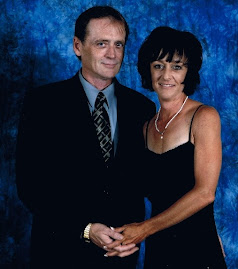Monday, September 3, 2007
Recommend A Specialist
The primary intent of this blog is to share some tips I have learned over the years with others who are having difficulties with trying to find a diagnosis for a chronic condition, but I also have one other goal in mind. Before any patient can be diagnosed with any condition, he / she must first find a specialist that is patient friendly. From my experience, that is often easier said than done.
Knowing what you expect from a specialist and learning some tips on how to locate a patient friendly specialist are important. Part of my vision is to include links to specialists, whom other patients have found to be patient friendly, caring, and thorough. In a prior blog I made the comment that “word of mouth is the best advertising that money cannot buy”. With that understanding, I am seeking input from patients, friends of patients, or families of patients who have a form of Parkinsonism or other related movement disorder, who have found patient friendly specialists.
I intend to add an additional links section, which will include contact information for specialists who patients have found to be patient friendly. Although I am focusing on Parkinsonism and other related movement disorders, specialist recommendations for other chronic illnesses are welcome also.
I have come across so many people with movement disorders, who have or are having the same difficulties I have faced, with respect to finding or confirming a diagnosis, as well as finding a patient friendly specialist to render or confirm a diagnosis. These patients are not only in my geographical area, but also throughout the United States. If a recommendation list can be compiled, based solely on patients’ personal experiences with specialists, it can increase the odds significantly for someone else who may be having trouble finding a patient friendly specialist. It could help save another patient time, frustration, anger, tears, and the anxiety that is felt when the patient knows there is something wrong, but is unable to find a patient friendly specialist to help find the answers.
Parkinsonism and other associated movement disorders often take several years, from the onset of symptoms, to obtaining a diagnosis. The variability of symptoms and progression of symptoms, adds to the difficulty of the diagnostic process. Additionally, several movement disorders are diagnosed solely on a clinical basis, which is dependent on the symptoms of the patient. Many of the conditions are so similar, that it is difficult for the specialist to discern which condition a patient may actually have.
From my own personal experience, if your symptoms do not fit into the textbook criteria developed for diagnosing a condition, then you might be told there is no possibility that you may have that condition. For example, I had one specialist specifically state that I was “too young” to have Parkinson’s Disease. I also do not have predominant tremor, but I do have bradykinesia as my dominant symptom, which affects my walking and speech. I am definitely not a Parkinson’s Disease textbook case, so right out of the hole, I did not fit in to the textbook description of someone with Parkinson’s Disease. Now, I still do not know if I have Parkinson’s Disease, but I do know I have Parkinsonism that currently responds to Sinemet, and I went through four specialists to get to the Parkinsonism diagnosis.
So many other patients out there do not fit the textbook description for a movement disorder, but may eventually be given a diagnosis. It is easy to understand that a specialist will not make a diagnosis on the first visit. A patient may need to be followed for a significant length of time, before the specialist has enough information to render or confirm a diagnosis. This scenario would be acceptable to most patients. The most difficult aspect remains. The patient needs to find a specialist, who often must look outside of the textbook descriptions of various conditions, and be willing to follow the patient until he / she feels comfortable with making a diagnosis.
Collectively, we can help each other by sharing information and providing personal recommendations to other patients. Therefore, regardless of where you live, by recommending a specialist that you have found to be patient friendly, you may be able to help a fellow patient in your area, who has not been able to find a patient friendly specialist. You may offer a recommendation directly through this blog by submitting a comment.
Thank you.
Knowing what you expect from a specialist and learning some tips on how to locate a patient friendly specialist are important. Part of my vision is to include links to specialists, whom other patients have found to be patient friendly, caring, and thorough. In a prior blog I made the comment that “word of mouth is the best advertising that money cannot buy”. With that understanding, I am seeking input from patients, friends of patients, or families of patients who have a form of Parkinsonism or other related movement disorder, who have found patient friendly specialists.
I intend to add an additional links section, which will include contact information for specialists who patients have found to be patient friendly. Although I am focusing on Parkinsonism and other related movement disorders, specialist recommendations for other chronic illnesses are welcome also.
I have come across so many people with movement disorders, who have or are having the same difficulties I have faced, with respect to finding or confirming a diagnosis, as well as finding a patient friendly specialist to render or confirm a diagnosis. These patients are not only in my geographical area, but also throughout the United States. If a recommendation list can be compiled, based solely on patients’ personal experiences with specialists, it can increase the odds significantly for someone else who may be having trouble finding a patient friendly specialist. It could help save another patient time, frustration, anger, tears, and the anxiety that is felt when the patient knows there is something wrong, but is unable to find a patient friendly specialist to help find the answers.
Parkinsonism and other associated movement disorders often take several years, from the onset of symptoms, to obtaining a diagnosis. The variability of symptoms and progression of symptoms, adds to the difficulty of the diagnostic process. Additionally, several movement disorders are diagnosed solely on a clinical basis, which is dependent on the symptoms of the patient. Many of the conditions are so similar, that it is difficult for the specialist to discern which condition a patient may actually have.
From my own personal experience, if your symptoms do not fit into the textbook criteria developed for diagnosing a condition, then you might be told there is no possibility that you may have that condition. For example, I had one specialist specifically state that I was “too young” to have Parkinson’s Disease. I also do not have predominant tremor, but I do have bradykinesia as my dominant symptom, which affects my walking and speech. I am definitely not a Parkinson’s Disease textbook case, so right out of the hole, I did not fit in to the textbook description of someone with Parkinson’s Disease. Now, I still do not know if I have Parkinson’s Disease, but I do know I have Parkinsonism that currently responds to Sinemet, and I went through four specialists to get to the Parkinsonism diagnosis.
So many other patients out there do not fit the textbook description for a movement disorder, but may eventually be given a diagnosis. It is easy to understand that a specialist will not make a diagnosis on the first visit. A patient may need to be followed for a significant length of time, before the specialist has enough information to render or confirm a diagnosis. This scenario would be acceptable to most patients. The most difficult aspect remains. The patient needs to find a specialist, who often must look outside of the textbook descriptions of various conditions, and be willing to follow the patient until he / she feels comfortable with making a diagnosis.
Collectively, we can help each other by sharing information and providing personal recommendations to other patients. Therefore, regardless of where you live, by recommending a specialist that you have found to be patient friendly, you may be able to help a fellow patient in your area, who has not been able to find a patient friendly specialist. You may offer a recommendation directly through this blog by submitting a comment.
Thank you.
Subscribe to:
Post Comments (Atom)




No comments:
Post a Comment